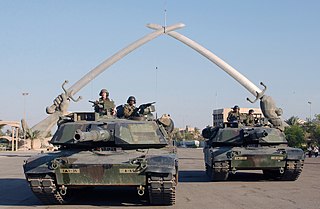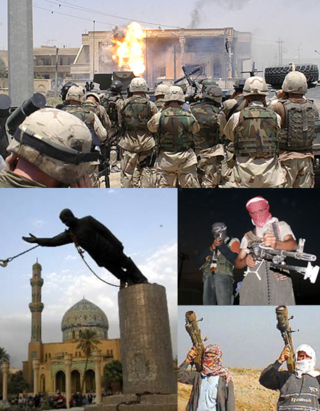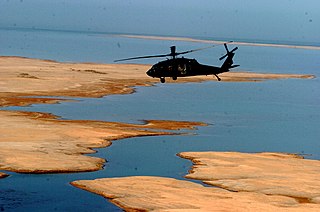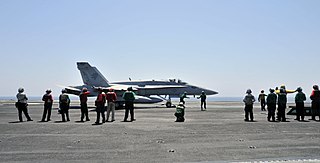| |||||
| Decades: | |||||
|---|---|---|---|---|---|
| See also: | |||||
Events in the year 2003 in Bulgaria .
| |||||
| Decades: | |||||
|---|---|---|---|---|---|
| See also: | |||||
Events in the year 2003 in Bulgaria .

The United States public's opinion on the invasion of Iraq has changed significantly since the years preceding the incursion. For various reasons, mostly related to the unexpected consequences of the invasion, as well as misinformation provided by US authorities, the US public's perspective on its government's choice to initiate an offensive is increasingly negative. Before the invasion in March 2003, polls showed 47–60% of the US public supported an invasion, dependent on U.N. approval. According to the same poll retaken in April 2007, 58% of the participants stated that the initial attack was a mistake. In May 2007, the New York Times and CBS News released similar results of a poll in which 61% of participants believed the U.S. "should have stayed out" of Iraq.

This article describes the positions of world governments before the actual initiation of the 2003 invasion of Iraq, and not their current positions as they may have changed since then.

The 2003 invasion of Iraq was a United States-led invasion of the Republic of Iraq and the first stage of the Iraq War. The invasion phase began on 19 March 2003 (air) and 20 March 2003 (ground) and lasted just over one month, including 26 days of major combat operations, in which a combined force of troops from the United States, the United Kingdom, Australia and Poland invaded Iraq. Twenty-two days after the first day of the invasion, the capital city of Baghdad was captured by Coalition forces on 9 April 2003 after the six-day-long Battle of Baghdad. This early stage of the war formally ended on 1 May 2003 when U.S. President George W. Bush declared the "end of major combat operations" in his Mission Accomplished speech, after which the Coalition Provisional Authority (CPA) was established as the first of several successive transitional governments leading up to the first Iraqi parliamentary election in January 2005. U.S. military forces later remained in Iraq until the withdrawal in 2011.

The occupation of Iraq was characterized by a large United States military deployment on Iraqi territory, beginning with the US-led invasion of the country in March 2003 which overthrew the Ba'ath Party government of Saddam Hussein and ending with the departure of US troops from the country in 2011. Troops for the occupation came primarily from the United States, the United Kingdom, and Australia, but 29 other nations also provided troops, and there were varying levels of assistance from Japan and other countries, as well as tens of thousands of private military company personnel.

The following is a timeline of major events during the Iraq War, following the 2003 invasion of Iraq.

On May 1, 2003, United States President George W. Bush gave a televised speech on the aircraft carrier USS Abraham Lincoln. Bush, who had launched the U.S.-led invasion of Iraq six weeks earlier, mounted a podium before a White House-produced banner that said "Mission Accomplished". Reading from a prepared text, he said, "Major combat operations in Iraq have ended. In the battle of Iraq, the United States and our allies have prevailed" because "the regime [the Iraqi dictatorship of Saddam Hussein] is no more". Although Bush went on to say that "Our mission continues" and "We have difficult work to do in Iraq," his words implied that the Iraq War was over and America had won.
The Hood event was an incident on July 4, 2003, following the 2003 American invasion of Iraq where a group of Turkish military personnel operating in northern Iraq were captured, led away with hoods over their heads, and interrogated by the United States military. American soldiers seized 15 kg of explosives, sniper rifles, grenades and maps of Kirkuk, with circles drawn around positions near the governor's building when they raided Turkish offices in Sulaimaniya. The soldiers were released after sixty hours, after Turkey protested to the United States. A Kurdish intelligence official claimed that the Turkish soldiers had been linked to a plot to assassinate the newly elected governor of Kirkuk to destabilise the region so that Turkish forces would be needed to restore order.

The Iraq War was a protracted armed conflict in Iraq from 2003 to 2011 that began with the invasion of Iraq by the United States-led coalition that overthrew the Iraqi government of Saddam Hussein. The conflict continued for much of the next decade as an insurgency emerged to oppose the coalition forces and the post-invasion Iraqi government. US troops were officially withdrawn in 2011. The United States became re-involved in 2014 at the head of a new coalition, and the insurgency and many dimensions of the armed conflict are ongoing. The invasion occurred as part of the George W. Bush administration's war on terror following the September 11 attacks, despite no connection between Iraq and the attacks.

The Multi-National Force – Iraq (MNF–I), often referred to as the Coalition forces, was a military command during the 2003 invasion of Iraq and much of the ensuing Iraq War, led by the United States of America, United Kingdom, Australia, Italy, Spain and Poland, responsible for conducting and handling military operations.

Events in the year 2008 in Iraq.
In 2003, there were 25 suicide bombings executed by 32 attackers.

Bulgaria–Iraq relations are the international relations between Bulgaria and Iraq. Bulgaria has an embassy in Baghdad and Iraq has an embassy in Sofia.

The 2003 attack on Karbala was an unsuccessful strike on the Iraqi Republican Guard's Medina Division by the U.S. 3rd Infantry Division during the 2003 invasion of Iraq. The Medina Division was mostly deployed along the Karbala gap, west of the city of Karbala itself. The Iraqi Division was targeted as it was the best equipped Iraqi unit, and its destruction would negatively affect Iraqi military morale. The Medina Division sustained only limited damage during the engagement.

The Iraqi insurgency was an insurgency that began in late 2011 after the end of the Iraq War and the withdrawal of U.S. troops from Iraq, resulting in violent conflict with the central government, as well as low-level sectarian violence among Iraq's religious groups.

On 15 June 2014, U.S. President Barack Obama ordered United States forces to be dispatched in response to the Northern Iraq offensive of the Islamic State (IS) as part of Operation Inherent Resolve. At the invitation of the Iraqi government, American troops went to assess Iraqi forces and the threat posed by ISIL.
The following lists events that happened during 2003 in Kuwait.
The Task Force 976 Thai-Iraq was a military unit of the Royal Thai Armed Forces, it was a part of the Multi-National Force – Iraq The Mission unit was Humanitarian Operation in Iraq, After the successful US invasion of Iraq, Thailand contributed 423 non-combat troops in August 2003 to nation building and medical assistance in post-Saddam Iraq.
The term coalition of the willing was applied to the US-led Multi-National Force – Iraq, the military command during the 2003 invasion of Iraq and much of the ensuing Iraq War. The coalition was led by the United States.